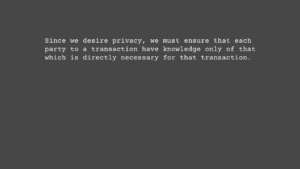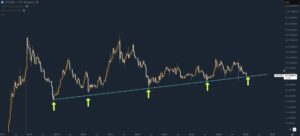Bitcoin, Tether and crypto mining activity are thriving in Lebanon, a country whose failed financial system has decimated the country and its populous.
The hyperinflationary collapse of the country’s banking system as well as its significant depreciation of the local currency prompted numerous Lebanese residents to switch to cryptocurrencies for transactions, including stablecoins.
Some locals have focused on Bitcoin mining since it is easy to use cheap hydropower from rivers to generate cash.
What triggered the collapse?
Considered to be one of the most developed countries in the Middle East before the 1970s, Lebanon struggles with multiple economic problems. The nation’s GDP contracted by 40% since 2018, with inflation reaching 160% and the value of the currency falling over 90% against the dollar.
Lebanon’s downfall is said to have started at the end of the last century when civil war gripped the country, plunging societies into chaos and victimising thousands. Besides these internal conflicts, the country has also clashed with Israel’s army, with kinetic warfare being a semi-common occurrence.
In 2005, Former Prime Minister Rafic Hariri was assassinated in a car bomb explosion. Political heads of the time blamed Syria, eventually prompting another war which led to vast waves of migration from the embattled country. For context, up to 14 million Lebanese and descendant reside outside their homeland, twice the population of Lebanon itself.
For decades, the exhausted and war-torn country has not been able to turn things around.
Cryptocurrencies aren’t going away. Buy Bitcoin & Litecoin here.
Crypto fixes this
Still, those who reside in the country must deal with a different normality – that is, a perpetual financial crisis. Since preserving wealth using the country’s dilapidated monetary infrastructure is next to impossible, locals have turned to alternatives to preserve wealth and transact.
As reported by CNBC, 27-year-old Georgio Abou Gebrael is one such people to turn to Bitcoin. He first heard about crypto in 2016 and considered it a scam. But as Lebanon’s economic collapse intensified, Gebrael gave it a shot and realised it was the only way out.
Gebrael, who worked as an architect, lost his job in 2020 and could not withdraw his bank savings as all domestic financial institutions banned such transactions.
Fortunately, he found employers willing to pay him in bitcoin. His first job involved an advert for car tires. He was paid $5 worth of BTC. Gabrael was keen on acquiring assets which banks could not seize, block access to or tamper with without his consent. Today, he accepts bitcoin for nearly every job, claiming the asset has become his bank:
Bitcoin has really given us hope. I was born in my village, I’ve lived here my whole life, and bitcoin has helped me to stay here.
Speaking on the matter was also Ray Hindi – the CEO of L1 Digital AG – who was born and raised in Lebanon but left at the age of 19:
The situation hasn’t really changed since 2019. Banks limited withdrawals, and those deposits became IOUs. You could have taken out your money with a 15% haircut, then 35%, and today, we’re at 85%. Still, people look at their bank statements and believe that they’re going to be made whole at some point.
Sustainably mining crypto
Crypto mining has turned into a niche for young Lebanese entrepreneurs. Together with his father, Ahmad Abu Daher started mining using hydroelectric power in a small mountain town located 48km south of Beirut. Following the merge, they shifted their operations to produce bitcoin.
Energy is harnessed from the Litani River says Abu Daher. His operations gets him 20 hours of electricity at pre-inflationary prices.
‘So basically, we are paying very cheap electricity, and we are getting fresh dollars through mining’, he said.
Storing wealth in Bitcoin is a better idea than using Lebanese pounds. This led Abu Daher to expand his business in the last few years. He now owns thousands of machines spread across the country and customers worldwide.
The Lebanese government tried to stop mining operations by raiding unauthorised entities and hiking energy prices, but the entrepreneur is not concerned about that since his operation cooperates with law enforcement and is fully legal:
We had some meetings with the police, and we don’t have any problems with them because we are taking legal electricity, and we are not affecting the infrastructure.
Tether takes centre stage
The world’s leading stablecoin – Tether (USDT) is also popular in Lebanon. Tether is backed 1-1 to the US Dollar and fully backed by overcollateralized reserves. The demand for the token is so high that local businesses accept payments, despite Lebanese law prohibiting its usage.
‘The use of USDT is widespread. There are a lot of coffee shops, restaurants, and electronics stores that accept USDT as a payment, so that’s convenient if I need to spend not in fiat but from my bitcoin savings. The government has much bigger problems right now than to worry about some stores accepting cryptocurrency,’ Gebrael explained.
Abu Daher also uses USDT to import machinery. However, most transactions are still done in Lebanese pounds, such as electricity bills, Internet fees, and rent. Regardless, cryptocurrency real-world usage is on the rise, especially in countries with broken financial systems.
Join the telegram channel for updates, charts, ideas and deals.
Did you like the article? Share it!


